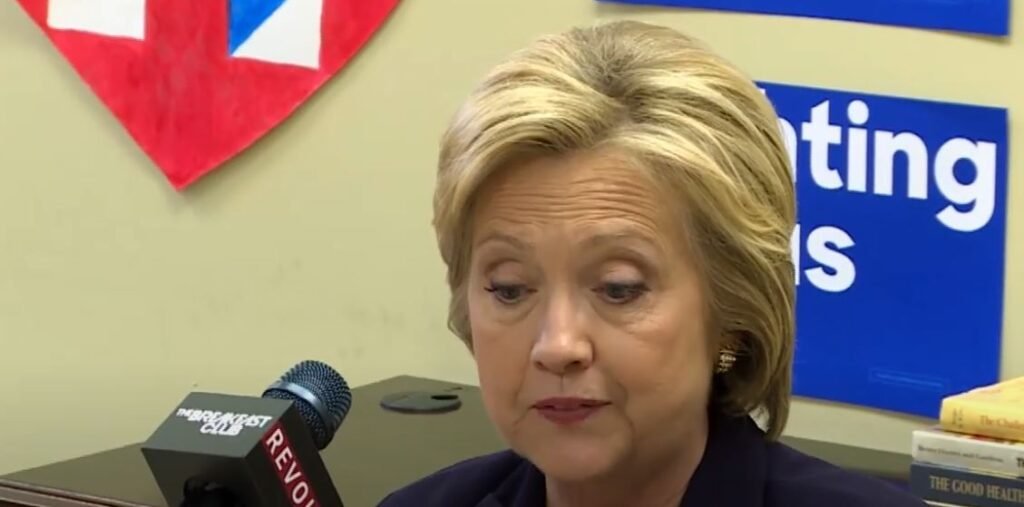
According to recent reports, a political controversy that never really went away has been rekindled by the FBI’s recovery of deleted Clinton emails. Investigators were able to recover communications that were previously believed to be lost forever by using sophisticated forensic techniques. According to some insiders, this recovery is exceptionally successful in both its technical implementation and its capacity to change public discourse.
Compared to a straightforward file restoration, the procedure was much more complicated. “Deleted digital correspondence leaves faint traces — fragments scattered like shreds of paper after a storm,” say former cybersecurity experts familiar with such operations. FBI analysts meticulously put this digital debris back together using advanced tools, uncovering messages that may provide new insight into Clinton’s policy choices and procedural flaws.
Hillary Clinton – Personal & Professional Profile
| Field | Information |
|---|---|
| Full Name | Hillary Diane Rodham Clinton |
| Date of Birth | October 26, 1947 |
| Birthplace | Chicago, Illinois, USA |
| Education | Wellesley College (BA), Yale Law School (JD) |
| Political Affiliation | Democratic |
| Key Public Roles | First Lady of the United States (1993–2001), U.S. Senator (2001–2009), 67th U.S. Secretary of State (2009–2013) |
| Presidential Campaigns | Democratic Nominee (2016), Candidate (2008) |
| Spouse | William Jefferson Clinton (m. 1975) |
| Major Publications | Living History, Hard Choices, What Happened |
The recovery effort’s proponents contend that it is especially advantageous for historical accountability. They see it as a chance to resolve enduring suspicions and dispel long-standing doubts. However, detractors raise doubts about the political motivations behind this renewed scrutiny, arguing that the timing fits in too well with contemporary electoral narratives.
Digital forensics has developed over the last ten years at a startlingly similar rate to the growth of public discourse on transparency. Because of this intersection, records that were previously inaccessible are now more easily retrieved in the context of national governance. Law enforcement organizations are now much quicker at recovering deleted or hidden data thanks to the integration of state-of-the-art data recovery protocols, which is encouraging but also concerning.
The story highlights Clinton’s remarkable resilience in enduring political upheavals, according to her supporters. Although the email controversy has been a recurring headline, they point out that her career encompasses decades of legislative success, policy influence, and diplomatic engagement. Given her history of perseverance in high-pressure situations, they view the renewed attention as just another challenge she is prepared to handle.
Opponents, on the other hand, portray the revelation as a moment of accountability that has finally caught up to a seasoned politician. They intend to strategically distribute the recovered content in order to influence public opinion in ways that could be especially significant in the run-up to important elections.
Political analysts have pointed out in recent days that the FBI’s techniques, while not publicly disclosed, seem to be very adaptable and might be used in other well-known investigations involving digital erasure. This has sparked debates among privacy advocates, who caution that although these tools are very effective for valid questions, they may also be abused in the absence of strict regulation.
The necessity of safe and open recordkeeping became abundantly evident during the pandemic, when remote work greatly increased digital correspondence. In this way, the Clinton email scandal seems remarkably current and serves as a warning to both public servants and business executives.
From a wider angle, the recovery also contributes to a global trend in which the boundaries of investigative reach are being redefined by advanced technological capabilities. These forensic tools can gather information far beyond the immediate target, which is a strength when used sparingly but a risk if boundaries are not clearly established. It’s similar to a fisherman’s net that can be cast farther and wider than ever before.
One thing is certain as the political theater plays out: the recovered emails have already influenced the story, regardless of their content. Once damaged, public trust is notoriously difficult to restore, but this renewed access to primary source material presents a very unique opportunity for open review. How this chapter is remembered in the end may depend on how well that opportunity is taken.
